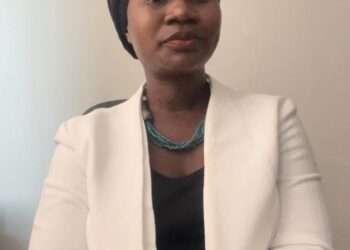Amidst the financial terrain of 2023, the Ghanaian cedi navigated a challenging trajectory, grappling with a notable year-to-date depreciation of 15.57% in the retail market and a more substantial 27.81% in the interbank market against the US dollar.
Despite these significant figures, Bloomberg’s assessments refrained from categorizing the cedi within either the ‘Best Spot Returns’ or ‘Worst Spot Returns’ categories, highlighting the complexity of the currency’s performance throughout the year.
As the calendar year concluded, Bloomberg reported the cedi’s valuation at GH¢11.95 pesewas against the American dollar on December 29, 2023. However, the local forex bureaus in Ghana presented a slightly higher rate, quoting the cedi at GHl¢12.18 per US dollar.
In contrast, the Bank of Ghana provided a more favorable exchange rate of GH¢11.64 to the dollar, adding an interesting dimension to the various rates circulating in the financial landscape.
The divergence in rates among Bloomberg, local forex bureaus, and the central bank sheds light on the complexities of the foreign exchange market and the diverse factors influencing currency valuations.
While Bloomberg’s valuation serves as a global benchmark, the local forex bureaus’ rates and the central bank’s intervention underscore the local subtleties that contribute to the cedi’s overall performance.
Despite facing challenges and experiencing depreciation, the absence of the cedi in Bloomberg’s ‘Best Spot Returns’ or ‘Worst Spot Returns’ categories suggests a nuanced evaluation that considers broader economic factors at play.
The cedi’s resilience, albeit against a backdrop of depreciation, points towards a multifaceted economic landscape that demands a closer examination of global and local dynamics.
From Recovery to Surplus
The Ghanaian cedi’s performance in 2023 emerges as a tale of recovery, contextualized by its bounce back from the drastic 50% depreciation suffered against the US dollar in 2022. A significant contributor to this stabilization is Ghana’s three-year International Monetary Fund (IMF) program, credited with mitigating sharp currency devaluation, reducing portfolio outflows, and lowering amortization payments.
The positive Impact of the Fund program is evident in the notable shift of the current account from a deficit of $1.8 billion in 2022 to a surplus of $1.0 billion in 2023. The Bank of Ghana underscores these developments, emphasizing their influence on the country’s balance of payments.
Additionally, the arrival of the first tranche of the Cocoa Syndicated Loan has further eased demand pressure on the US dollar, instilling market expectations of a strengthened cedi performance in the upcoming periods.
Zooming out to the broader African currency landscape, Bloomberg’s rankings place the Guinea franc at the forefront as Africa’s top-performing currency in 2023. With a modest gain of 0.64% against the dominant US dollar, the Guinea franc outshone counterparts like the Djiboutian franc, Mauritian rupee, and Mozambique new metical, securing the subsequent ranks.
In contrast, the Nigerian naira, Angola kwanza, and Malawi kwacha faced significant challenges, earning the title of the continent’s worst-performing currencies with depreciations of 49.5%, 39.14%, and 38.96%, respectively. These contrasting fortunes highlight the economic diversity across African nations, shaped by local and global factors influencing currency values.
As Ghana’s cedi stands on the path of recovery and positive transformation, the complex interaction of international financial programs, market dynamics, and external funding sources continues to mold the currency’s trajectory.
Observing the broader African context underscores the importance of understanding the unique challenges and opportunities that each nation faces in navigating the complex world of currency fluctuations.
As Ghana looks ahead to 2024, the performance of the cedi against the anchor currency remains a focal point for economists, investors, and policymakers alike. The interplay of global economic trends, local market conditions, and central bank strategies will continue to shape the destiny of the Ghanaian cedi in the ever-evolving world of international finance.
READ ALSO: Unraveling The SML/GRA Scandal: A Delayed Audit Or Political Maneuvering?





















